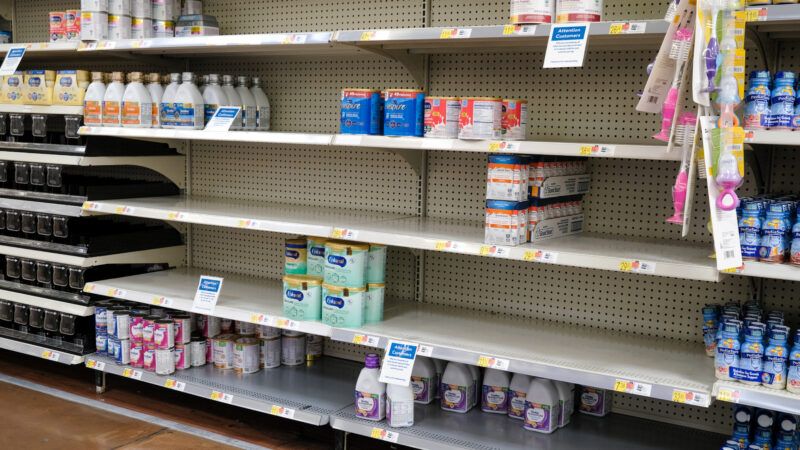Former FDA Official: The Prohibition on European Baby Formula Isn't About Safety
"The knot in getting that product into the U.S. isn't safety, it's a regulatory issue," says Peter Pitts.

The baby formula shortage in the U.S. is likely to continue for several weeks, as it will still take some time to get Abbott Laboratories' shuttered Michigan plant back up and running once the Food and Drug Administration (FDA) OKs the reopening. That means families who rely on the product will still be contending with greatly reduced availability—as much as 40 percent in many states—for the time being.
Reason's Elizabeth Nolan Brown and Eric Boehm have both highlighted the disastrous government policies that have worsened the crisis, including high tariffs that make it prohibitively expensive to import baby formula to the U.S. Another issue is the FDA itself, which has made it illegal for Americans to buy many kinds of baby formula that are widely available in Europe.
In an interview on my YouTube show, Rising, former FDA associate commissioner Peter Pitts confirms that the agency doesn't view this as a safety issue, strictly speaking: U.S. health inspectors know the European products are safe. Their problem is that the products are labeled in a manner that does not meet the expectations of the U.S. government.
"The difference between European baby formula and American baby formula, more or less, is that the labeling is different," says Pitts. "The knot in getting that product into the U.S. isn't safety, it's a regulatory issue. I don't want to say it's a nitty issue, but it's certainly something the FDA could have jumped on a lot quicker."
So there it is. Federal bureaucrats have made it more difficult for mothers and fathers to buy food that they need for their babies because, well, the government can't let the labels be wrong. Rules are rules, after all.


Show Comments (22)